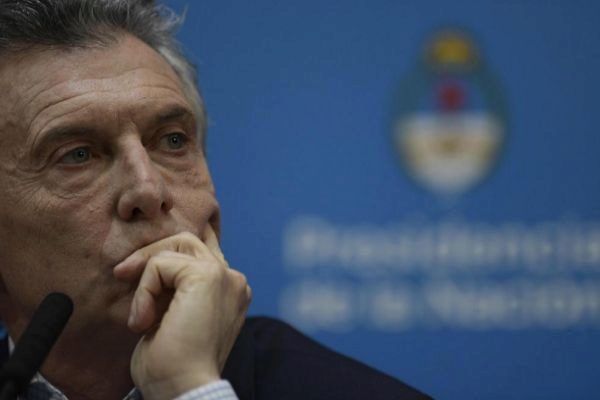The arrival of Mauricio Macri to the Casa Rosada in 2015 "markedly changed the investment climate" in the country and reintroduced Argentina - a market of 44 million inhabitants with high development potential - into the orbit of large multinationals and funds from investment. This is included in one of the numerous economic analyzes carried out by the Foreign Trade Institute (Icex) that analyze the situation and evolution of the Latin American country.
The Argentine president, now weakened by the results of the primary elections last Sunday, promoted a reformist investment plan since he came to power and managed to return the country to large international markets with the first issuance of public debt since 2002. structural reform program, endorsed by the IMF, companies from all countries of the world led by US, Canadian and, thirdly, Spanish groups flocked.
The so-called Macri Plan has attracted in the last four years an investment of more than 5,700 million dollars by Spanish companies, which are now jeopardizing their commitment to the sinking of the peso and the sharp increase in inflation and the cost of Public debt A scenario that, if it continues like this, will soon contaminate and undermine the economic situation of the country.
Investment banks such as UBS warned yesterday of the economic "uncertainty" unleashed by the unknowns about the direction that a hypothetical new government in Buenos Aires will take in terms of its relationship with the IMF and the return to an expense and fiscal deficit policy of the Peronism The Swiss bank places at 60% the possibility that a new Executive led by Alberto Fernández will promote a restructuring of the country's financial debt.
The company that has most opted for Argentina is Telefónica, with a 2.4 billion plan for the development of technological infrastructure in the country. It is followed by Banco Santander, with an investment of 1,932 million, Naturgy (450 million) or Supermercados Dia (290 million), as stated in the statistical records of the Argentine government.
"Spain is the first foreign investor in financial services, real estate services, electricity and gas supply and in administrative activities and support services," explains Icex. The country is the second largest international investor by presence in the country with an accumulated stock of $ 13,169 million at the end of 2018.
The crisis continues
After a black Monday, on Tuesday the 13th he offered some calm to the Argentine financial crisis: the peso continued to devalue but the Stock Exchange could recover in part from the record fall of the previous day. Everything, in a context in which the government still does not give clear signs of what measures it will take to curb the speculative wave unleashed from the overwhelming triumph of Peronism in Sunday's primary elections.
The one that did not calm down - on the contrary - was the "country risk", which when it reached 1,702 points doubled that of Monday to reach its highest level in ten years. This indicator, old known in Spain during the worst years of the crisis, shows the excess interest rate paid by the Argentine debt in international markets, a reflection of distrust in the country: how much higher, less hope there is that The State complies with its financial obligations. In that context, the risk rating agency Moody's confirmed that it is closely following the financial situation to decide if the note assigned to the Argentine debt changes, newspaper El Cronista said.
But the dollar is the value that Argentines follow minute by minute. Although there have been no formal and public announcements of the Argentine economic authorities so far, the recipe for containing the rise of the US banknote is clear: the Central Bank sells reserves and raises interest rates to stand at 74% to stop the bidding of the value of the weight. If a dollar cost 47.55 pesos the Friday before the election, yesterday closed at 58.
The variation of the US currency has a direct impact on inflation. The government's objective now is that the devaluation does not fully impact the sale prices in supermarkets. In other cases, there are no prices directly. It happens, for example, with cars: manufacturers and distributors retain them because they say they don't know how much to sell them. The general elections are October 27, but all analysts agree that the economy of the country will not resist if it follows the path of the last two days.
And although the government of Mauricio Macri did not give any sign of measures, local media began publishing details of the plan to contain this crisis: stop the devaluation at any cost, talk with supermarkets so that they do not completely transfer prices to loss of value of the peso, reduce the income tax, which taxes the salary, raise the minimum wage and offer a line of credits to small and medium enterprises.
In parallel to the financial shocks, Alberto Fernández starred in a confrontation with the president of Brazil, Jair Bolsonaro , who yesterday warned that if Kirchnerism wins in October there will be an exodus of Argentines to his country. At night, the one who is emerging as the next Argentine president raised the bet: «I am glad that Bolsonaro speaks ill of me. He is a misogynist, a racist. All I ask is that I leave Lula (da Silva, former president) free. With Bolsonaro I have no problem in having problems ».
According to the criteria of The Trust Project
Know more- Argentina
- Spain
- Mauricio Macri
- Naturgy
- Telefonica
- Jair Bolsonaro
- IMF
- David Silva
- Brazil
- Santander Bank
- TV
Macroeconomics The IMF cuts global growth due to the US-China trade war and Brexit
Economy The Argentine peso in free fall: another 7.5% is devalued and the risk premium touches 10-year highs
SpainThe Government withdraws Nadia Calviño's candidacy to lead the IMF to favor "consensus"

